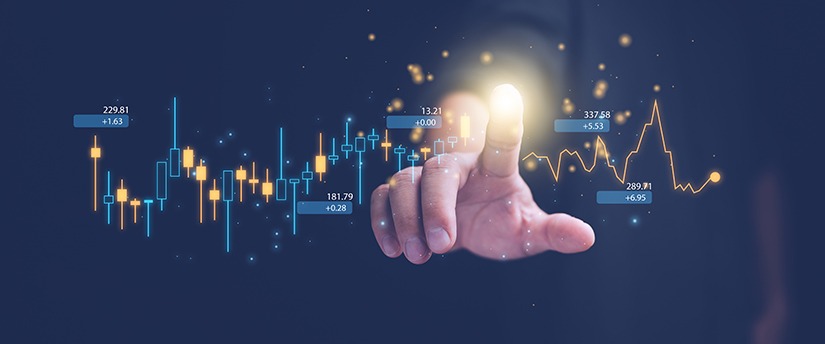In the fast-paced world of forex trading, managing clients efficiently is key to running a successful brokerage. As a forex broker, your growth depends not only on the quality of your platform like MT4 or MT5 but also on how well you handle client onboarding, communication, and service. This is where a forex CRMS becomes essential.
What Is a Forex CRMS?
A Forex CRMs (Customer Relationship Management system) is a specialized tool designed for forex brokers to manage customer data, interactions, and business processes. Unlike generic CRM software, a forex CRMS is built to integrate seamlessly with MT4/MT5 platforms and handle the specific needs of forex trading operations.
From registration and KYC to deposits, withdrawals, and client support—your CRM acts as the control center for your entire brokerage.
Why Client Management Is So Important
In forex trading, your clients are your business. Their experience determines your revenue, reputation, and retention. A trading platform like MT4 or MT5 offers the front-end for executing trades, but the real relationship is managed behind the scenes.
Here’s why excellent client management matters:
- Happy clients trade more often
- Smoother onboarding means fewer dropouts
- Quick support builds trust and loyalty
- Efficient KYC reduces regulatory risks
- Organized data allows for better marketing and segmentation
- Seamless Onboarding with KYC Automation
First impressions count. A forex CRM allows new users to register quickly, upload their documents, and get verified without manual delays. This is especially helpful for brokers using MT4 or MT5, where real-time account creation is crucial.
Benefits include:
- Fast account approval
- Reduced manual work
- Instant connection to MT4/MT5 accounts
With onboarding taken care of, your clients can focus on trading from day one.
- Centralized Client Profiles
A powerful forex CRM stores all client data in one place, including:
- Contact details
- Trade history
- Deposit and withdrawal records
- KYC status
- Support conversations
This makes it easy for your sales or support team to access everything without juggling spreadsheets or emails. Whether it’s a client placing their first trade on MT4, or an experienced forex trader with a long history on MT5, your team has instant access to key info.
- Better Communication and Follow-Ups
A forex broker that communicates well keeps clients longer. CRMs allow you to:
- Send automated emails (welcome, verification, inactivity reminders)
- Notify users about offers, contests, or webinars
- Set call reminders for your sales team
All this creates a personalized experience that keeps your clients engaged in their forex trading journey.
- Live Dashboard and Trading Sync
Top forex CRM systems sync in real time with MT4 and MT5 platforms. This means you can monitor:
- Live balances
- Open trades
- Margin levels
- Total volume traded
For client managers, this is valuable because it allows proactive outreach—like helping clients avoid margin calls or encouraging them to deposit more.
Example:
A user hits 50% margin on MT4. The CRM alerts the team, and they send an email or call to assist the client with funding.
This kind of service builds lasting trust.
- Affiliate and IB Management
Referrals are a huge part of growing a forex broker brand. With a good CRM, you can manage IBs and affiliates, track their referrals, and calculate commissions automatically.
Key features:
- Multi-level IB structure
- Commission and rebate tracking
- IB portal with live stats
Affiliates can see which of their clients are active, trading on MT5 or MT4, and how much revenue they’re generating. This transparency makes your IBs more loyal and motivated.
- Handling Support Tickets
Support is a big part of client management. Many CRMs include a built-in ticket system so users can raise issues related to:
- Deposit failures
- Login problems
- Trade execution delays
- Withdrawal status
This system helps you stay organized and ensures no client request is missed. Some advanced Forex CRMs tools even allow clients to submit tickets right from their dashboard.
- Reporting and Analytics
A forex CRM helps you understand how your business is doing through smart reports such as:
- Top depositors
- Inactive traders
- Most traded symbols
- Volume by region
You can use these insights to run targeted campaigns or optimize your service. For example, if most of your volume is on MT4, but new users are leaning toward MT5, you can shift your focus accordingly.
- Payment Integration and Wallet Management
A good CRM supports direct integration with payment providers. Clients can deposit using:
- Credit cards
- Bank transfer
- Crypto wallets
- Local gateways
The CRM logs every transaction and syncs it with MT4 or MT5, keeping your accounting clean. Wallet features also allow users to move funds between their trading accounts and main wallet with ease.
- Scalability for Growth
As your brokerage grows, your CRM must keep up. Whether you add new languages, open a second office, or start offering new trading instruments, your forex CRM should be ready.
It should allow:
- Multiple admin users with role permissions
- Custom branding for different regions
- Load balancing for large user volumes
This way, you’re not limited by your tech stack when you’re ready to scale.
Conclusion
Client management is the heart of every forex broker business. With the right forex CRM, you can simplify operations, offer better service, and scale your brokerage effectively. Whether your clients are trading on MT4 or MT5, a robust CRM keeps everything running smoothly behind the scenes.
If you’re serious about launching or growing in the forex trading world, investing in the right CRM isn’t optional—it’s essential.





